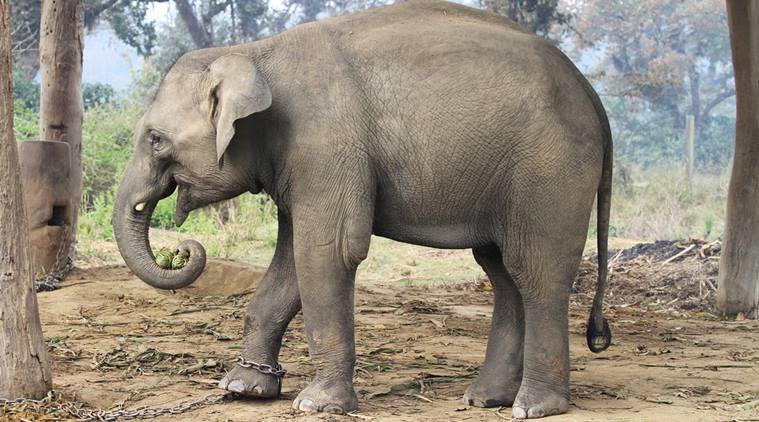Stay updated with the latest - Click here to follow us on Instagram
Odisha: Fifth case of rare viral infection in elephants has officials worried
EEHV is a rare infection which, according to experts, has no “true cure”. The EEHV cases reported from the state are a first in the country.
 The fifth case, however, has worried officials as it is the first reported from the wild.
The fifth case, however, has worried officials as it is the first reported from the wild.
A fifth suspected case of Elephant endotheliotropic herpesvirus (EEHV) in the state has officials in the state worried.
Four elephants — three females and one male in the age group of 6-10 — have succumbed to EEHV in the past month in Nandan Kanan Zoo in Bhubaneswar. The fifth suspected case was reported from the Chandaka forest area. State forest officials visited the animal on Thursday but were unable to discern if it would survive.
EEHV is a rare infection which, according to experts, has no “true cure”. The EEHV cases reported from the state are a first in the country.
“It is confirmed that (elephant) deaths (in Nandan Kanan) were due to EEHV (strain 1A) as confirmed by Indian Veterinary Research Institute (IVRI)”, said Dr S P Yadav, member-secretary Central Zoo Authority (CZA). “No one can say what triggered the virus, which most elephants carry just as most humans carry a cold virus. When EEHV is triggered, the elephant dies of massive internal bleeding and symptoms which are hardly visible.”
The fifth case, however, has worried officials as it is the first reported from the wild. “If elephants in the wild start falling prey to the virus, then treatment will be very difficult,” Principal Chief Conservator of Forests (PCCF) and Chief Wildlife Warden (CWW) H S Upadhyay told The Indian Express. It will be extremely hard to track down every wild elephant in the state and test whether they are positive for EEHV and the state government cannot afford the manpower, he said.
According to the experts at the Washington-based Smithsonian’s National Zoo and Conservation Biology Institute, “there is no true cure for herpes viruses in animals or in humans”. It adds, “Because herpes viruses go latent, we won’t be able to find a ‘cure’ but we hope to collaborate in refining effective treatments and help in the development of a vaccine to prevent EEHV”.
“The biggest problem is that the disease is very fatal and has a short disease course of 28-35 hours,” senior veterinarian at Nandan Kanan, Alok Kumar Das, said.
“This means we have to take a very quick call on a suspected EEHV case and kick off treatment protocols. This treatment is a combination of anti-viral therapy, aggressive fluid therapy (to counter haemorrhaging), immuno-stimulant drugs (selenium and Vitamins C, E), anti-pyretics and analgesics (to bring down fever),” he said.







